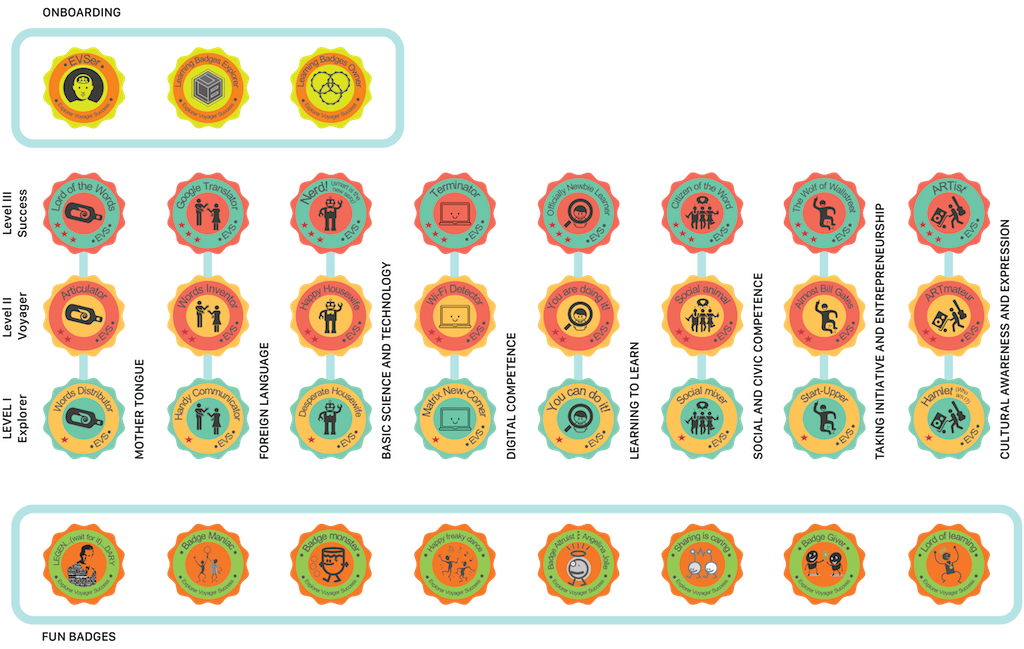Recognition of learning at the European Voluntary Service
Developed by Cazalla Intercultural
European voluntary service (EVS) badges were created to support and recognise learning of EVS volunteers through the whole volunteering process abroad, which can last up to 12 months. It can be used as a learning support tool for mentoring. An EVS mentor can use the system as a supporting tool for planning, documenting, reflecting and recognising the learning achievements of a EVS volunteer, while volunteers can use this system on their own to plan, monitor and recognise their learning and share achievements with others. Badges also support the Youthpass process and can be used as part of a CV. Certificates with badges have endorsement of the regional association of young entrepreneurs of Lorca.
 When volunteers start their EVS, they work on implementing on-boarding missions and claiming three on-boarding badges that help volunteers to get familiar with the system and start exploring and earning badges. These badges are easy to earn and help volunteers get to know what badges they can earn throughout their volunteering experience.
When volunteers start their EVS, they work on implementing on-boarding missions and claiming three on-boarding badges that help volunteers to get familiar with the system and start exploring and earning badges. These badges are easy to earn and help volunteers get to know what badges they can earn throughout their volunteering experience.
The key set of badges is aligned to eight key competences for lifelong learning as part of the European Competence Framework. There are three levels, where volunteers can choose what competences to work on and which badges to earn. To earn a next-level badge, volunteers must have a previous-level badge of the same competence.
Explorer badge level
By the end of the first months of the EVS project, a volunteer will:
- have factual knowledge on volunteering and living abroad;
- apply basic skills required to carry out volunteering tasks and manage a life abroad;
- be able to solve routine problems using simple rules and tools;
- carry out volunteering tasks under limited supervision with some autonomy;
- acquire and apply basic key competences at this level.
Voyager badge level
By the mid-term of the EVS project, a volunteer will:
- have knowledge on the facts, principles, processes and general concepts of volunteering and living abroad;
- apply a range of skills required to accomplish volunteering tasks and manage a life abroad;
- be able to solve routine problems by selecting and applying basic methods, tools, materials and information;
- take responsibility for the completion of volunteering tasks;
- adapt own behaviour to circumstances in solving problems;
- acquire and apply basic key competences at this level.
Success badge level
By the end of the EVS project, a volunteer will:
- have broad knowledge on volunteering and living abroad;
- apply a range of skills required to generate solutions to specific problems in a field of volunteering and living abroad;
- exercise self-management within the guidelines of volunteering contexts;
- supervise the routine work of others, while implementing personal projects;
- take some responsibility for the evaluation and improvement of volunteering activities.
Learning can be fun, too! If volunteers become bored with serious tasks, they can take a breath and earn some Fun badges.